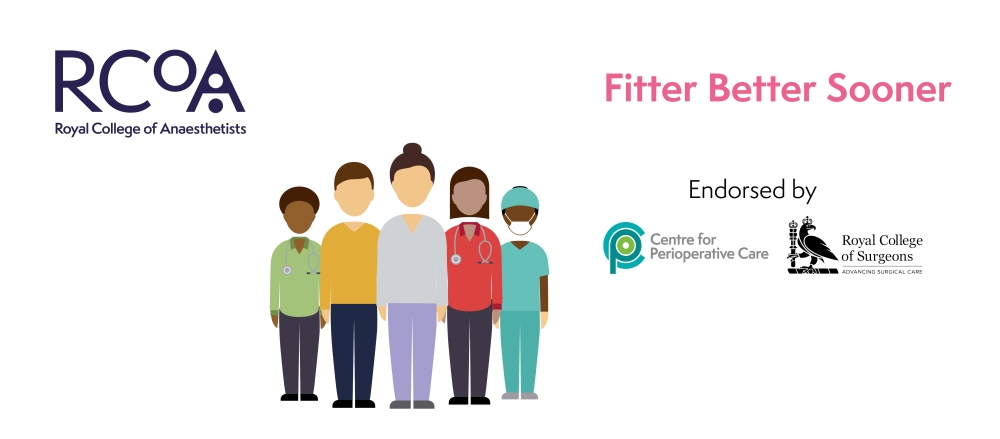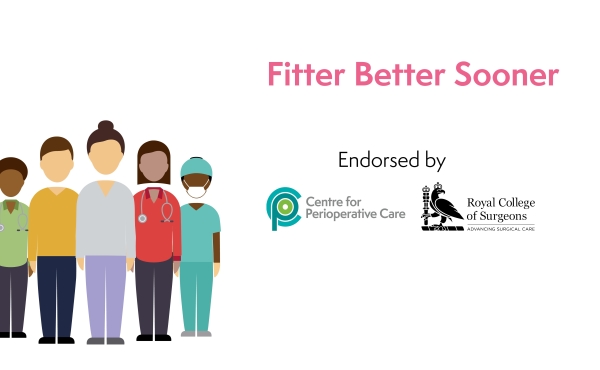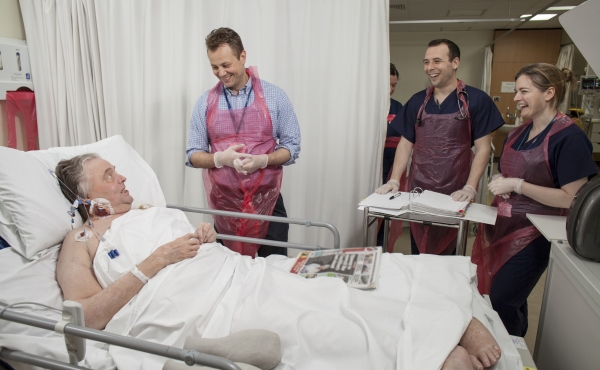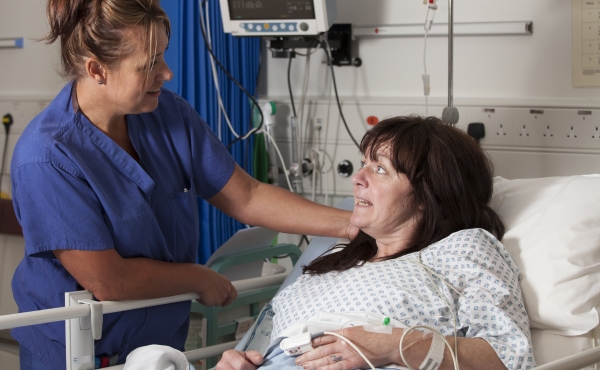Fitter Better Sooner featured in British Journal of General Practice

The Centre for Perioperative Care and the Fitter Better Sooner toolkit are both featured in the 1 May edition of the British Journal of General Practice.
Fitter Better Sooner
The Fitter Better Sooner toolkit aims to help patients to prepare physically and psychologically for surgery and was produced by the Royal College of Anaesthetists (RCoA), with representatives from the Royal College of General Practitioners (RCGP) and the Royal College of Surgeons (RCS) and alongside patient representatives. The resources have been endorsed by both the RCGP and RCS, and have been awarded 'highly commended' in the BMA Patient Information Awards 2019.
The toolkit is intended for patients who are awaiting, or considering, surgery. It introduces the many ways in which they can optimise their health, lifestyle, and activity levels to maximise their chances of a good recovery, free of complications. It informs patients about the perioperative pathway, so they better know what to expect and to feel more in control, which in turn reduces anxiety. It also deals with the practicalities and benefits of actively planning, both for an admission to hospital and for their recovery at home.
A resource for GP surgeries
Although anaesthetists and pre- assessment nurses are already successfully using Fitter Better Sooner in pre-assessment clinics, currently there is little information for patients to read in GP surgeries on preoperative optimisation. Surgeries can display the leaflets or play the Fitter, Better, Sooner animation as a rolling loop on their screens in waiting areas. The RCoA website also offers a range of Fitter Better Sooner materials, including posters, flyers, and stickers to signpost the resources to patients.
Sharing these resources with relatives and carers will help them understand the patient journey and equip them to provide much needed practical and psychological support to their loved ones. Well-motivated patients may attend the surgery for advice about their health, activity, and lifestyle. Surgeries can anticipate this and help signpost the many practical resources and organisations available within their community. It is hoped that in turn GPs will be 'rewarded' by patients having fewer complications and fewer visits to their GP postoperatively, as well as long-term improvements to the health of their patients and their communities.

Collaboration between primary and secondary care
The RCGP is a key partner in CPOC. Perioperative medicine refers to the practice of patient-centred, multidisciplinary, and integrated medical care from contemplation of surgery until full recovery. Good perioperative care should improve the health of the individual (including returning to home/work and a quality of life similar to or even better than before surgery), provide a good patient experience of care, improve the health of populations, and provide value for the system as a whole.
It is in the interests of all members of the perioperative team to have informed, motivated, and empowered patients. By providing information and signposting resources as early as the point of referral for surgery, or during initial discussions with GPs combined with local social prescribing initiatives, the use of time available for optimisation can be maximised, particularly for patients who have long waits for surgery.
Would you like to see more from the BJGP?
Please visit their website for the most up to date information.




